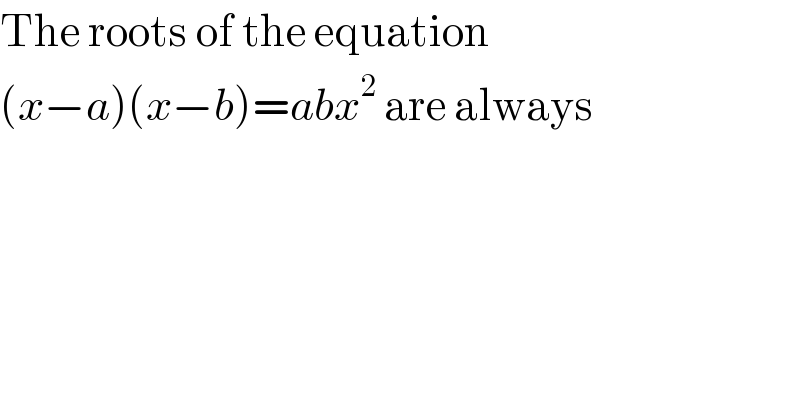
Question and Answers Forum
Question Number 78888 by zainal tanjung last updated on 21/Jan/20

Commented by mr W last updated on 21/Jan/20

Answered by behi83417@gmail.com last updated on 21/Jan/20
![(1−ab)x^2 −(a+b)x+ab=0 △=(a+b)^2 −4ab(1−ab)= =a^2 +b^2 +2ab−4ab+4a^2 b^2 = =(a−b)^2 +4a^2 b^2 >0 [∀ a,b∈R] ⇒there is alweys two real roots.](Q78930.png)
| ||
Question and Answers Forum | ||
Question Number 78888 by zainal tanjung last updated on 21/Jan/20 | ||
 | ||
Commented by mr W last updated on 21/Jan/20 | ||
 | ||
Answered by behi83417@gmail.com last updated on 21/Jan/20 | ||
![(1−ab)x^2 −(a+b)x+ab=0 △=(a+b)^2 −4ab(1−ab)= =a^2 +b^2 +2ab−4ab+4a^2 b^2 = =(a−b)^2 +4a^2 b^2 >0 [∀ a,b∈R] ⇒there is alweys two real roots.](Q78930.png) | ||
| ||